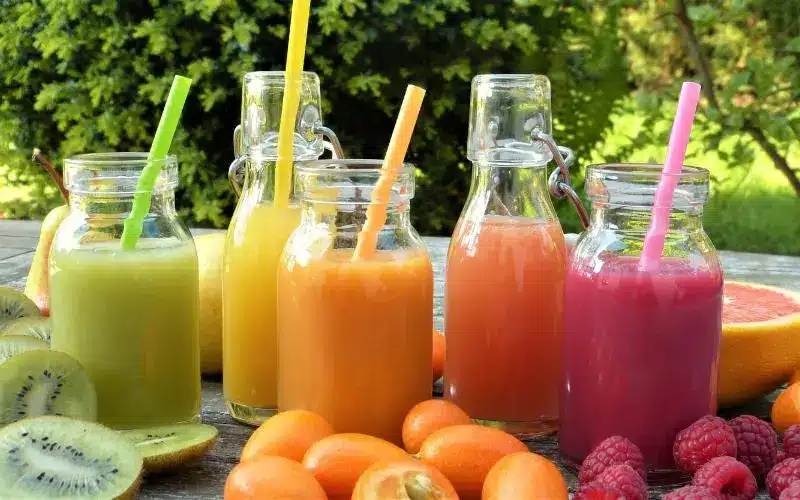
Juicing has surged in popularity as people seek convenient ways to boost their nutrient intake. It’s not just a health trend—it’s a powerful method to fuel your body with essential vitamins, minerals, and antioxidants. But what exactly is juicing, and how does it work? Let’s break it down.
Juicing is the process of extracting liquid from fruits and vegetables while removing most of the fiber. The result is a nutrient-dense drink packed with vitamins and minerals that your body can absorb quickly.
Health-conscious individuals are turning to juicing for a quick and efficient way to boost wellness. It’s also a favorite among celebrities and fitness enthusiasts who swear by its benefits for energy, detoxification, and immunity support.
Several studies support the benefits of juicing, highlighting its role in improving cardiovascular health, reducing inflammation, and enhancing overall well-being. Research also suggests that consuming raw, unprocessed juices can provide a more bioavailable source of essential nutrients compared to cooked or processed foods.
Juicing removes fiber, allowing nutrients to enter your bloodstream more rapidly. This is particularly beneficial for individuals with digestive issues who struggle to absorb nutrients from whole foods.
Raw juices contain natural enzymes that aid digestion and metabolism. These enzymes are often lost during cooking, making juicing one of the best ways to preserve and consume them.
Fresh juices are loaded with antioxidants and anti-inflammatory compounds that strengthen the immune system. They help neutralize free radicals, reducing the risk of illness and infections.
Studies suggest that consuming high doses of vitamin C and antioxidants can reduce the severity and duration of colds. Juicing provides a concentrated source of these nutrients.
Juices are low in calories but high in nutrients, making them ideal for weight loss. They also help curb cravings and promote satiety, reducing the urge to snack on unhealthy foods.
Juicing supports the liver, the body’s natural detox organ. Hydration and antioxidants in fresh juices help flush out toxins and improve overall cleansing processes.
Unlike processed sugars that lead to energy crashes, natural sugars in juices provide sustained energy. Nutrient-rich juices also help improve metabolism and endurance.
Brain-friendly nutrients like omega-3s (found in leafy greens) and antioxidants (from berries and citrus) enhance cognitive function, reducing brain fog and improving focus.
Juicing provides prebiotics that nourish gut bacteria, improving digestion and reducing bloating.
Juices with anti-inflammatory properties help alleviate digestive discomfort and bloating. Ginger and peppermint are particularly effective in soothing IBS symptoms.
Hydration from fresh juices helps maintain skin elasticity and prevents dryness, while antioxidants fight free radicals that contribute to aging.
Vitamins A, C, and E in juices help reduce wrinkles, dark spots, and fine lines by promoting collagen production and skin repair.
While juicing has numerous benefits, it’s essential to balance it with whole foods for fiber intake. Planning ahead can make juicing a practical daily habit.
Absolutely! Juicing is a fantastic way to flood your body with essential nutrients, boost energy levels, and enhance overall health. Whether you’re looking to detox, lose weight, or improve digestion, adding fresh juices to your diet can offer significant benefits. Just remember—balance is key. Pair your juices with a well-rounded diet for the best results.

My name is Debra Cargill, I live in my home in Springfield, Massachusetts and have been looking for new direction in my life. I started blogging recently and I've discovered a new passion in life. This blog is all about health, wellness, life issues and about lifestyle in general where I cover a broad range of topics on the subjects....
Click to read on